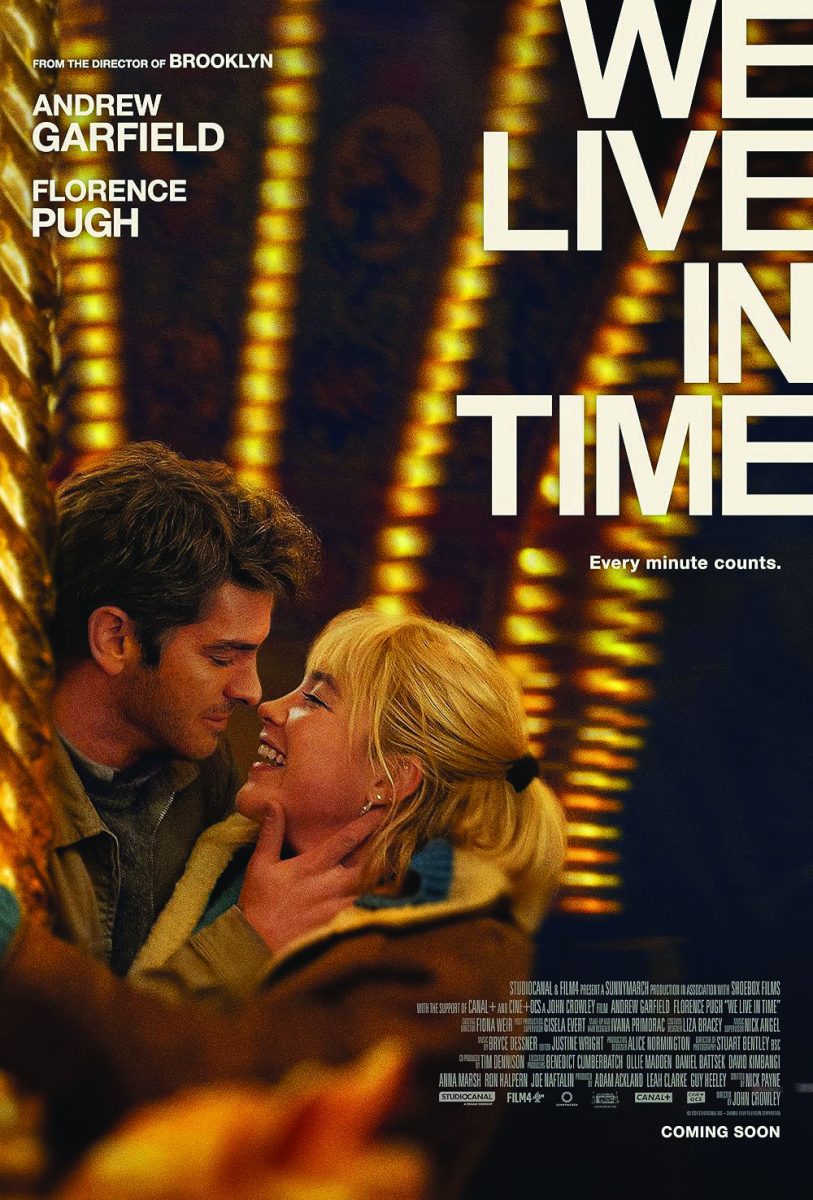Love is fleeting, and that’s especially apparent when one attempts to compress a lifetime’s worth of stories into a sub-2 hour film. That’s what director John Crowley and playwright-turned-screenwriter Nick Payne attempt to do in their new film “We Live in Time” to largely commendable results.
The film, told in a nonlinear fashion, is carried on the backs of its two stars, Andrew Garfiled and Florence Pugh even though the relationship between them serves as its true protagonist. Overall, the movie is largely moving, with its paint-by-the-numbers narrative compensated for by the stirring emotion throughout.
The film follows Weetabix salesman Tobias (Garfield), who gets run over fresh out of his divorce by restaurateur-chef Almut (Pugh). Despite the unconventional starting point, Almut and Tobias fall in love, eventually settling down and having a child together.
Things take a turn for the worse when Almut is diagnosed with cancer, threatening to rip the family apart. Normally, this plot turn would be a spoiler, but due to the unique story structure in which the events take place, the film doesn’t happen linearly, and the audience is presented with essentially all the information up front.
This unconventional approach to telling a rather conventional story livens up the material, but sometimes, especially in the first half, the movie feels a touch like a montage. Another drawback for the structure is the juxtaposition of sometimes wildly different tones, with scenes designed to make you cry tears of laughter and tears of sadness sometimes almost uncomfortably close together.
Once the film hits its stride, however, it finds an emotional balance that feels just right, with all the beats hitting exactly how Crowley seems to intend.
Pugh especially shines, her performance bringing humanity to a three-dimensional character that at times transcends the script. In the hands of a less capable actress, Almut could come off too soft or too hardened, yet Pugh walks a tightrope to make her actions convincingly justifiable. Garfield also has a respectable turn, with one argument scene in particular near that end that really stands out.
His character, though, is written in a way in which he never seems to be the bad guy, and, accordingly, I never quite bought some of the complex motivations that were intended for him.
Some of the film’s subplots are more compelling than others, but they all serve to illuminate Tobias and Almut’s relationship from start to finish, giving it a depth rarely portrayed in relationships on screen.
At times, the characters themselves feel living and breathing, in no small part due to the performances, but also because of Payne’s script that prioritizes character over narrative.
Despite its flaws, the film accomplishes exactly what it intends to do: make you sob. Emotion is the centerpiece of the film, its success defined by the lasting impression that feels like getting hit by a devastating train. Crowley’s direction is firm yet restrained, making coaching the raw feeling out of each heartbreaking turn in Tobias and Almut’s relationship look easy, so for that the film should be commended.
Garfield, Pugh star in stirring love story
September 27, 2024
Categories:






